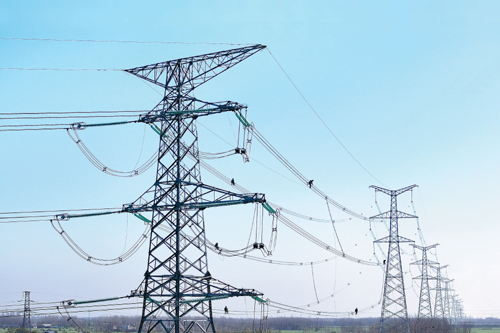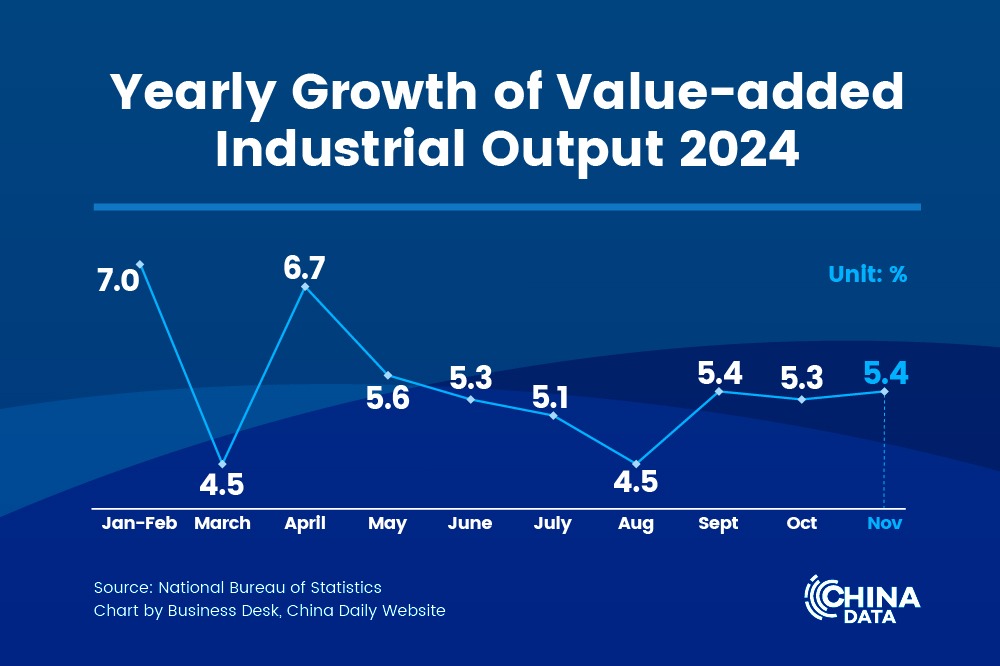Making efforts to advance automation
Chinese innovative research capacity behind top honor win for cutting-edge power project

A Chinese team made headlines at the 2024 International Convention on Quality Control Circles in Sri Lanka, showcasing innovative research capacity and inspiring leadership of a team member with unique life experiences.
The "Chaoyong" Quality Control team, representing China, secured the Gold Award — the highest honor — for their innovative project of shortening the commissioning time of dispatching automation information in 110-kilovolt substations.
The team's award-winning project addressed a critical industry challenge: the excessive time required to commission information linkage between substations and the master station in power systems.
Under the leadership of Zhang Jiming and Zhang Duxi, the team spent over two years conducting research and developing solutions on the topic, successfully reducing commissioning times from 150.23 hours to 71.01 hours, while also achieving significant labor cost savings and reducing equipment wear.
The innovation is expected to go beyond time-saving. In recent years, as distributed photovoltaic power has developed rapidly, the large-scale integration of distributed photovoltaics has brought challenges to the operation of traditional power systems, the key solution to which is believed to achieve better observability, measurability, controllability and adjustability of distributed power systems.
Targeting potential power operating risks, Zhang's team has comprehensively applied cutting-edge technologies such as edge computing and secure encryption to achieve group control and group adjustment of distributed photovoltaics.
"Now, thousands of photovoltaic power stations can be controlled with just one command sent by the control center," Zhang said.
To date, the technology has already been implemented in Ningbo, Zhejiang province, where it has received positive feedback from local power companies. The nationwide adoption of the technology is projected to generate economic benefits of over 100 million yuan ($13.74 million), he said.
The team's efforts align with broader national efforts to enhance grid safety and efficiency. Eyeing more secure and smooth grid operations, China released its first national-level policy focused on enhancing the operational safety of the power system last month. A document of opinions on strengthening power governance by the National Energy Administration has outlined a comprehensive framework to bolster grid safety management.
The document emphasizes strengthening risk identification and control, addressing risks at their source, and implementing closed-loop risk management. The measures aim to improve large-scale power grid capacity to mitigate risks, ensuring its safe and reliable operation amid evolving needs, it said.
"Demand for economic and social development on the safe and sufficient supply of electricity is higher than ever," said Ouyang Changyu, head of the State Grid Energy Research Institute, in an earlier interview. "High-end industries such as chip manufacturing and the digital economy require exceptional power reliability and people's pursuit of a better life also calls for improved power quality."
These factors necessitate strengthened safety governance in the electricity sector, ensuring that advanced power safety becomes a driving force for high-quality economic and social development, Ouyang added.
Competing against 596 QC teams from 14 countries and regions, the team's success not only showcased their technical prowess, but also highlighted the inspiring leadership of Zhang Jiming, a power technician who has overcome extraordinary challenges to drive innovation.
At the age of three, Zhang experienced a high fever and had adverse reactions to antibiotics, which left him with near-total hearing loss. Since then, he has lived in a world of near silence, yet his determination and resilience have driven him to remarkable achievements.
Daily conversations typically range from 40 to 60 decibels, but Zhang can only perceive sounds exceeding 110 decibels — the equivalent of a helicopter's rotor noise. This significant hearing impairment posed immense challenges during his education and professional journey.
To help Zhang learn to speak, his mother tirelessly worked with him, teaching him to read lips and distinguish words by feeling airflow. Even though Zhang struggled in school during his early years, he excelled academically by his second year of junior high school and achieved a good score in mathematics during his senior high school entrance exams.
In 2000, Zhang joined the State Grid Zhejiang Ningbo Yinzhou Power Supply Co as a substation maintenance worker, where his early career was also marked by a slew of challenges. For instance, he once struggled to address a system fault because he could not hear instructions from a client over the phone.
Zhang's colleagues said that one of his unique habits is whenever he connects with a substation, he habitually repeats the other party's instructions over the phone. Only after receiving confirmation, does he proceed to issue the corresponding commands, ensuring that no detail is missed in critical operations.
Undeterred, Zhang devoted himself to studying technical manuals and mastering the principles of dispatching automation systems. His dedication and expertise eventually earned him leadership roles, where he focused not only on improving his own skills, but also on fostering innovation within his team.
In 2017, Zhang established a workshop aimed at advancing power grid technologies and mentoring young professionals. His leadership has been instrumental in nurturing talent, such as his apprentice Xu Dingkang, who later became a key technical force and won first prizes in several power operation skill competitions.
In addition, Zhang has also authored several professional books, some of which are now used as training material in the power industry. As a professor at Ningbo Open University, the experienced technician said he will continue to inspire and educate the next generation of power professionals.
"His philosophy is simple — what can be done today should never be delayed until tomorrow," said Xu. "He has set a devoted example for all of us."
Zhang views the team's recent ICQCC award as both a milestone and a stepping stone. "This recognition strengthens our determination to continue advancing quality improvement and automation technologies," he said. "We aim to expand the application of our innovations and further deepen research in quality management. Regardless of the challenges ahead, we will remain committed to promoting technological innovation."
From overcoming educational and professional hurdles to leading his team to global recognition, he exemplifies the power of determination and teamwork. In Zhang's own words: "Challenges will always be there, but with perseverance and innovation, we can create value and achieve greatness, no matter the obstacles."
Tan Guoling contributed to this story.




































